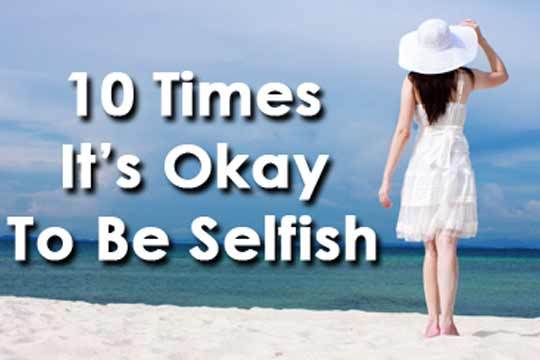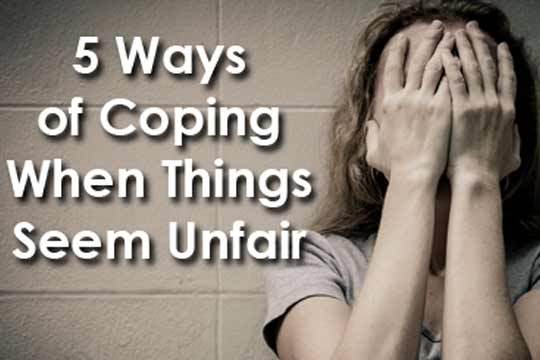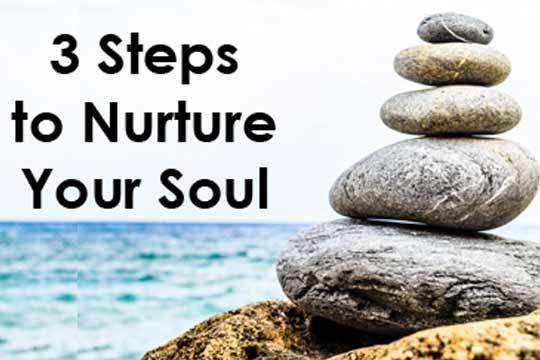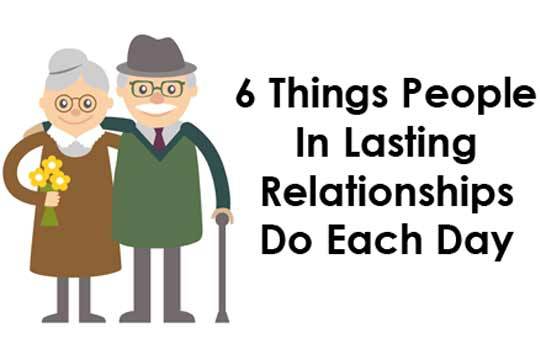Helene Lerner's Blog, page 13
June 27, 2016
3 Things You Learn From a Job You Hate

In a perfect world, you'd love your job. You'd earn tons of money, work with awesome people, and have unlimited freedom to do whatever the heck you want.
However, you're not in a perfect world. You're in a world where getting up in the morning is complete drudgery, because the thought of showing up in that place gives you the heebie-jeebies. You're in a world where most jobs are designed to make money, not happiness. You know, deep down, that quitting may be your best option, but your bills aren't exactly going to pay themselves.
So what do you do? What do you do?
Well, look at it this way. If you managed to last as long as you have in your current job, you pick up these nuggets of wisdom along the way.
1. You're Stronger Than You Give Yourself Credit For
Day in, day out, you put up with so much. You put up with a co-worker who types – or rather, pounds – on their keyboard like crazy. You put up with a boss who always makes you feel like you're never enough. You put up with tasks that would make even hardcore workaholics pop their eyeballs.
Yet, you're still here. You're still alive, kicking, and aware enough to realize that something ought to change. As Kelly Clarkson would say, what doesn't kill you makes you stronger, and resilience is always a handy trait to have no matter where you are.
2. You Learn to Look at the Glass Half Full
When you're forced to deal with negativity every single day, you have two choices. Either you let it drain every last bit of humanity out of you, or you turn it all around.
Instead of getting annoyed by your co-workers, you take it as a lesson on handling difficult people. Instead of brooding over unfair performance ratings, you celebrate even the tiniest of wins. Instead of reflecting on what could have been, you focus on what could be.
3. You Learn to Make the Hard Decisions
If there's one thing all problems have in common, it's that they're rooted in fear. You don't want to call out your boss's behavior, because you're afraid it'll get worse. You don't want to get to the bottom of your less-than-favorable performance review, because you're afraid there's actually a valid reason for it. You don't want to quit your job, because you're afraid you have no alternative.
Regardless, you have to do something. You may not make things better at your workplace, but you can still make things better for yourself. Talk to people you trust about your situation, ask them for advice and decide for yourself what to do next. If there's really nothing you can salvage anymore, it's best to move on. You can stay and endure until you find a better job, or you can take that leap and create your own company where you can play by your own rules, and be awesome while you're at it.
As cheesy as it sounds, it's never too late to change things for the better. Look at your job from a different angle, and you might just find a diamond buried under those heaps of dirty, black carbon.

Sarah Landrum is the founder of Punched Clocks, a site dedicated tosharing advice on all things career. Follow her on Twitter@SarahLandrum for more great tips!
What Happens to Your Body When You're Stressed (and what you can do about it)

In today’s world, it feels like you’re constantly being pulled in 15 different directions. There are demands at work, deadlines to meet, and a nasty boss to please. There’s pressure at home with bills that need paid, windows that need washed, and laundry that needs put away. And then there’s life with your partner, children, parents, family, friends, finances, and more. It’s no wonder so much of America is stressed out.
What many people don’t understand is what stress actually does to you. Yes, you know it keeps you up at night and it makes you binge on Oreos, but that’s only the beginning. That’s why Dr. Nandi is presenting you with 5 different ways your body reacts when you’re dealing with stress, whether it’s a crisis, something unexpected, or the day-to-day grind. By understanding what’s happening to your body and why, you’re able to be your own health hero and live the best life you can.
Engages the Fight or Flight Mechanism
The body’s natural response to stress is to do one of two things: either fight or flight. In nature, our ancient ancestors’ stressors were life threatening, whether it was tornadoes or packs of wild dogs. The only options were to stand and fight or run away as fast as you could. While those options aren’t as viable today, your body doesn’t know that and automatically prepares you by inducing the acute stress response system.
Releases Stress Hormones
While the fight or flight mechanism tenses your muscles to prepare you for whatever’s coming your way, the brain releases a range of stress hormones, particularly cortisol and epinephrine, commonly referred to as adrenaline. These chemicals boost your energy and keep you focused on the task at hand. They increase heart rate, blood pressure, and breathing. These hormones also cause the liver to increase production of glucose, giving you another energy boost. Yet in today’s world and with modern stressors, the extra sugar boost isn’t needed and can end up being problematic for those who are under chronic stress and predisposed to Type 2 diabetes.
Compromises Your Immune System
Cortisol increases the body’s inflammation response, which in turn lowers the immune system. For the brief time it takes to respond to stress, this doesn’t have much of an impact, but for those with chronic stress, it’s huge. Colds are more severe and last longer. You’re more prone to infections and likely to get sick when someone around you is ill. For those who go through a period of intense chronic stress, such as taking care of a loved one with a terminal illness, this same inflammation can cause hair to thin and fall out.
Dries Skin and Impedes Healing
When you’re stressed, the body naturally pulls water and moisture from the skin, perhaps to utilize it during exertion to keep you hydrated. Over time, the skin dries out, especially the outer layers which naturally lose more moisture. Your dry, dehydrated skin begins to lose its ability to heal and regenerate. This slows the healing process and leaves you more likely to have lingering cuts, scrapes, and bruises. Keep an eye on these wounds. Your immune system is already weakened; you’re more likely to get infections.
Does stress ever cause you to get butterflies in your stomach? How about the sudden urge to go the bathroom? Has it ever gotten so bad you’ve felt the need to throw up? Well, you’re not alone. Stress hormones are known to upset the stomach, induce vomiting, and even cause diarrhea.
Partha’s Rx
* Chronic stress is linked to numerous disorders and is the cause of 90 percent of family doctor visits
* Fifty percent of Americans report having extreme levels of stress at least part of the time
* Relaxation techniques, such as deep breathing or yoga, reduce the levels of stress hormones
* Practice mindfulness and learn to be in the moment to combat chronic stress
* Spend time in nature, as it relaxes the body and allows the mind to reset

Partha Nandi M.D., F.A.C.P is the creator and host of the internationally syndicated medical lifestyle television show, Ask Dr. Nandi. Dr. Nandi delivers passionate and inspiring talks to empower the world in his mission, “To Be Your Own Health Hero.”
10 Times It’s Okay To Be Selfish

Being selfish is something that we tend to frown upon. But let’s face it, we’ve got to take care of ourselves before we can help anyone else. Here are 10 instances when you need to put yourself first.
1. When someone is trying to come back into your life, but you’re not ready for it.
2. When someone keeps borrowing money from you and never pays you back.
3. When you’re single! This is your time to enjoy it.
4. When there’s only one unclaimed slice of pizza left.
5. When you really just need a night to forego the party and stay in and be comfortable on your couch.
6. When you splurge every once in a while on something you really want but don’t necessarily need.
7. When you need a break from your kids/your spouse/your friends. Take a little time off! You’ll be a better you when you return.
8. When it’s your day off. Don’t feel like you should be productive or working so you can completely enjoy it.
9. When someone is clouding your success with their failure. Yes, you’re sorry they had a bad experience, but you worked hard too and you should be celebrated!
10. When your well-being is at stake. Listen to your inner voice when it’s telling you it needs something.

- Bre Glynn
5 Ways Strong Women Overcome Obstacles

Strong women have the ability to deal with obstacles and to bounce back from their setbacks. Their resilience didn’t come from the easy times they’ve had, but from the hard times. They developed their grit and tenacity by facing their challenges and figuring out how to make the most of them. What can we learn from strong women? Here are five things:
They embrace obstacles
Strong women have an interesting perspective on obstacles. They look at an obstacle and say, “Hello, I was expecting you. You can do what you want but I won’t quit or become your victim. What I will do is to use this opportunity to learn more about myself. And by the way, you’re going to help me grow my skills and my ability to handle the tough stuff. Thank you in advance for everything I’m going to learn and for what I will become because of you.”
They learn from their mistakes
Everyone makes mistakes—whether they’re strong or not so strong. The difference is that strong women have the ability to admit they made a mistake so they don’t keep repeating it. When you see someone, man or woman, who bullies anyone when a mistake they made is pointed out and they fight back, that’s not strength, it’s weakness. Strong women realize their mistakes, correct them, and move on.
They ask questions
Strong women don’t pretend they know everything. Instead, they are curious and they are learning something new all the time. Strong women are confident in their talent, intelligence, and strengths, and aren’t afraid to ask questions or the opinions of others. Strong women ask questions, gather information, and then make up their own minds.
They lean on others
No one is a “self-made” anything. We are social beings with the need to relate to and connect with others. Strong women know their closest relationships are there for them when challenges, setbacks, and failures come. They are confident enough to confide in their inner circle their doubts, questions, fears, and inner pain. They lean on others so they can stand strong and move on.
They take care of themselves, not everyone else
Taking care of everyone but yourself isn’t a strength. Strong women respect others enough not to feel responsible for them. They know the difference between being responsible to someone and being responsible for someone. A strong woman thinks, “I respect myself and I also respect you enough to refuse to enable you.”
Strong women are strong because they realize their needs and wants are not less important than what others need and want. Strong women are loving, empathetic, and thoughtful—to themselves first. Then when they are there for someone else they are giving out of their abundance, not their dwindling reserves.

- Alan Allard, Creator of Enlightened Happiness
June 24, 2016
4 Times a Confident Woman Trusts Her Gut

Listening to intuition is important to make decisions that are right for you. Sometimes we tune into it, and sometimes we don’t. All in all, we should pay attention to it. Especially when:
Your body says so: Physical reactions like goosebumps, a tight throat, or a lump in your stomach should never be ignored. You notice these effects for a reason.
Taking a risk: Even if it doesn’t pan out, you can learn from your mistakes.
Making a big decision: Instead of analyzing each detail, going with what feels right at the moment often leads to better choices.
Helping others: Experts say that compassion is a primal emotion. It allows us to pick up subtle signals of anxiety and fear in others. So if we see someone who might be in a dangerous situation, it’s better to jump in and help instead of holding back.
- Barbara Bent
3 Signs You're Ready to Meet the Right Person

After sitting on the sidelines for a while, you think you’re ready to jump back in the game. But are you really ready for that? Here are three signs that show you are:
You’ve been honest with yourself: You’ve taken stock of your relationships, seen the pluses and the minuses and are ready to let go of bitterness and move on.
You hate perfection: Everyone has baggage, so finding a “perfect” person is not realistic. You’re no longer quick to judge someone based on the first encounter. Imperfection is a part of relationships.
You’re too busy loving life: People say you’ll find love when you least expect it, so do what makes YOU happy. Focus on the idea that the right person will enrich the life you already have.
- Barbara Bent
5 Ways of Coping When Things Seem Unfair

Life throws all sorts of obstacles our way. Some we can quickly overcome while others seem insurmountable. Here are ways to grapple with these tougher moments:
Gauge the severity: Before you start to panic, think hard about the situation. Is it really the end of the world or is it just inconvenient?
Welcome the challenge: You can choose to run and hide or you can choose to accept the hardships and find a way to move forward. Acknowledge the fact that you have to deal with it.
Jump into action: Find a way to handle the situation. Don’t sulk around waiting for something to happen. Instead, do whatever you need to do to make the change.
Leave it behind: After you’ve jumped this hurdle, leave it in the past. Learn from each of these experiences so you’ll be readily equipped to handle a similar situation next time.
- Barbara Bent
3 Steps to Nurture Your Soul

Don’t be afraid to go deep. We find peace and answers when we surrender to our inner spirit:
Tune in: Sit in a quiet space and allow yourself to descend a metaphorical staircase. Block out all the noises in your brain.
Reconnect with your innermost desires: Picture your higher self at the end of the staircase waiting for you, asking, “what do you truly want out of life?” Bring to mind the dreams you may have put on the backburner. What have you been neglecting?
Create an action plan: Prioritize these desires and explore how you can accomplish what’s most important. Every day do something to make them a reality.
6 Things People In Lasting Relationships Do Each Day

What makes relationships last? Make them successful? One thing you hear a lot about is that they don't they each other for granted.
Here are some other ways they show they care.
1. They say what's on their mind, but not mean. They don't hold back when it's something important. But when they share, they speak in "I" sentences. They don't accuse.
2. They keep doing little things for their partner. Those small acts of kindness and remembering mean so much.
3. They show their love. Hugging and kissing is not unusual.
4. They don't blame or shame their partner. Instead, they take responsibility for times when they are not feeling at their best.
5. They praise a lot. Let something good be said, you can't go wrong with that.
6. They recognize how much the other person has grown. They don't fear that the other person will leave them as both of them grow. They know that they can grow together, not apart.
Subtle Clues that Something is Wrong in Your Relationship

It’s important to be able to spot major red-flags in a relationship. But it’s trickier to pick up on the little things that, in the end, can snowball into bigger issues. Here are some small warning signs to look out for:
You don’t like their friends: You can tell a lot about someone based on who they associate with.
They don’t want to go public: Don’t waste your time on someone who wants to keep the relationship under wraps.
They show signs of controlling behavior: If they have “rules” about what you should wear or who you associate with, take it seriously.
Your friends are ambivalent: These people care about you, so don’t ignore their the fact that they’re unsure about your partner.
Not much affection: If you notice a lack of physical and emotional intimacy and you want more, keep an eye out and see if this continues.
- Barbara Bent
Helene Lerner's Blog
- Helene Lerner's profile
- 9 followers



